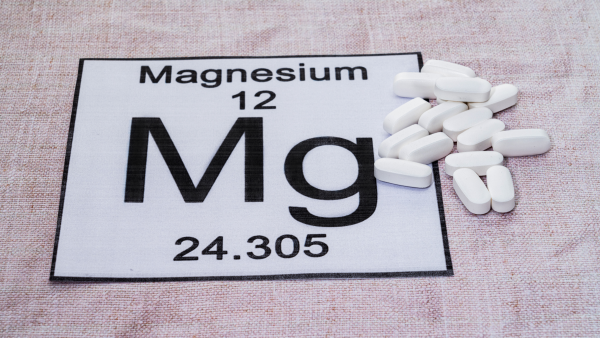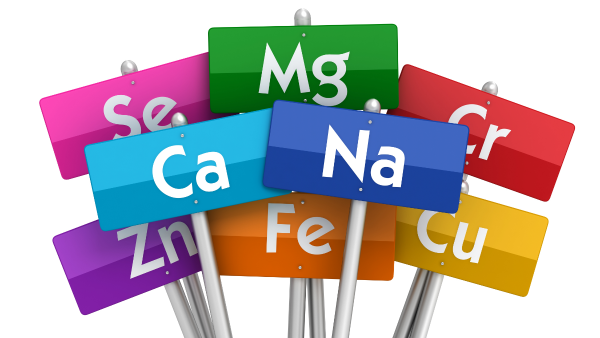Magnesium is an essential mineral that is of great importance to our body. We must get it from our food because it plays a role in over 300 enzymatic reactions. Without magnesium, many important metabolic processes cannot run properly. It is particularly important for the function of our muscles, the strengthening of our bones and the transmission of nerve impulses.
Magnesium contributes
- to a normal energy metabolism in
- to normal psychological function in
- to reduce tiredness and fatigue in
- to normal muscle function in
- to maintain normal bones in
- to maintain normal teeth in
- to normal functioning of the nervous system in
- to normal protein synthesis in
- to electrolyte balance in
*All claims of effectiveness are confirmed by the European Food Safety Authority through the Health Claim Regulation.
In our detailed article you will learn more about the importance and function of magnesium in the body.
Different forms of magnesium
Magnesium is always bound. So you are not taking pure magnesium, but magnesium that is bound to another molecule. This also applies to magnesium in food supplements.
Organic versus inorganic magnesium
When it comes to magnesium, a distinction is made between organic and inorganic magnesium. Organic magnesium is bound to organic molecules, inorganic to inorganic. Organic magnesium is better absorbed and has a higher bioavailability than inorganic magnesium. [1]
Organic compounds include:
- Magnesium citrate
- Magnesium malate
- Magnesium Glycinate
- Magnesium aspartate
- Magnesium gluconate
Inorganic compounds include:
- Magnesium oxide
- Magnesium carbonate
- Magnesium chloride
- Magnesium sulfate

Magnesium citrate versus magnesium glycinate
Two popular organic magnesium compounds are magnesium citrate and magnesium glycinate. Which of the two is better?
There is no general answer to this question. Both forms have very good bioavailability. [2]
Magnesium citrate promotes the absorption of water into the intestines. This makes the stool softer and easier to pass. This also means that magnesium citrate has a mild laxative effect when taken in high doses, which can be a problem for some people. However, it can be beneficial for constipation.
Magnesium glycinate is better for people who are sensitive to magnesium citrate. Glycine is also an amino acid that has many interesting properties. [3] Glycine is not only a building block for proteins, it is also a component of glutathione, the body's most important antioxidant. There is also evidence that glycine may promote intestinal healing and, at least in animals, may prolong life. Glycine also has a calming effect on the nervous system and could therefore possibly promote sleep. Glycine is the smallest amino acid and is easily lacking in the diet. (Incidentally, glycine is also the most common amino acid in collagen .)
Magnesium malate
Magnesium malate is also a popular organic magnesium compound. Malate is a salt of malic acid and is an intermediate in the production of ATP. ATP is the energy of cells.
Magnesium malate, like magnesium citrate and magnesium glycinate, has a very high bioavailability and is very well tolerated. In addition, magnesium malate can be stored well and stays in the body longer than other magnesium compounds. [4]
Magnesium in dietary supplements
When taking dietary supplements containing magnesium, you should pay attention to the form in which the magnesium is present.
However, organic compounds are very large molecules that take up a lot of volume. This is why the daily dose of organic magnesium compounds is often several capsules a day. This may be a little impractical, but it cannot be avoided and is in the nature of things.
For this reason, magnesium in multi-preparations is usually present as inorganic magnesium. Organic magnesium would simply take up too much space.
Viktilabs relies on organic magnesium with high bioavailability: high-quality tri-magnesium dicitrate and magnesium complex with magnesium bisglycinate
[1] https://pubmed.ncbi.nlm.nih.gov/16548135/
[2] https://pubmed.ncbi.nlm.nih.gov/30761462/

















